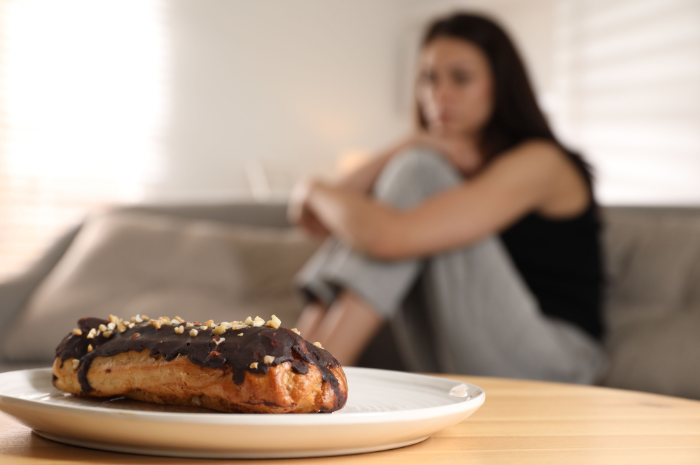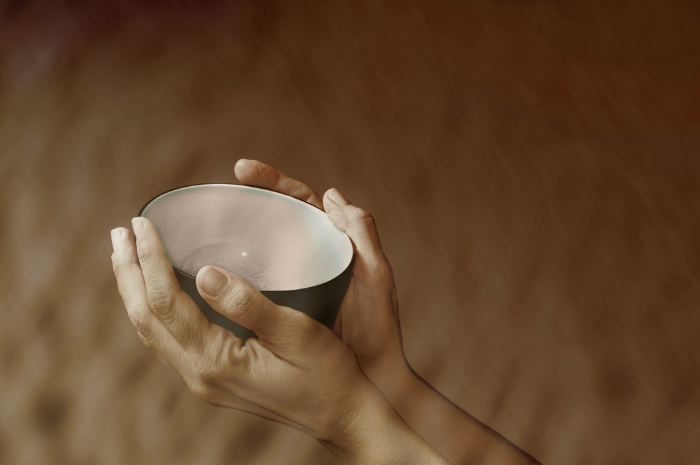Download your FREE ebook!
When Faith Becomes the Reason to Heal

In this week’s Kifaya Diet Podcast episode, I sat down with Safia Malik, an eating disorder survivor and certified recovery coach trained at the Carolyn Costin Institute. Safia’s story is powerful — not only because she found freedom after years of living under rigid food rules, but because her faith in Islam became the driving force behind her recovery.
Safia shared that her eating disorder once felt like a veil between her and Allah — preventing her from practicing her faith fully, joining Ramadan fasts, or even praying without feeling trapped in rules around food, movement, and control. She realized that true healing meant removing that veil to reconnect with her spiritual purpose.
“The eating disorder was always a barrier between me and the relationship I wanted with Allah. I couldn’t be the kind of Muslim, daughter, wife, or friend I wanted to be while living by those rules,” Safia explained.
The Role of Islam in Recovery
As Safia described, recovery was not only about gaining physical health, but also about returning to balance — mentally, emotionally, and spiritually. She discovered deep wisdom in Islamic practices that mirror what many recovery experts teach today: compassion, presence, surrender, and grounding.
For her, Salah (prayer) became one of the most powerful anchors.
While eating disorders often revolve around rigid routines and rituals that create false safety, Salah offered a new kind of structure — one rooted in peace, mindfulness, and connection to God.
“If you think about it, prayer replaces the disordered rituals with something sacred,” she said. “Instead of centering your day around food or exercise, you center it around Allah.”
The Power of Intention and Self-Compassion
One of the most moving parts of our conversation was about self-compassion — a concept that Islam emphasizes deeply but that so many people with eating disorders struggle to live by.
Safia reflected on verses and teachings that helped her let go of perfectionism and shame:
“Allah calls Himself the Most Compassionate again and again for a reason,” she said. “He doesn’t expect us to be perfect. He just wants us to keep coming back — as we are.”
This perspective changed the way she viewed recovery. Instead of striving to “do it right,” Safia began to focus on intentions — behind her eating, her movement, and even her prayers.
“Just like in Islam, intention matters more than perfection. If I eat with the intention to care for my body so I can serve Allah better, that alone is an act of worship.”
Creating Spiritual Goals
Safia also spoke about integrating spiritual goals alongside recovery goals — small, grounding practices like setting up a prayer area, saying dhikr before bed, journaling about ease and gratitude, or simply pausing to remember Allah in moments of stress.
She encourages her clients (Muslim and non-Muslim alike) to view spiritual growth as part of their healing.
“Even if you can’t change everything at once, start small,” she said. “You don’t need to be perfect — you just need to show up.”
A Shared Reflection
Our discussion reminded me that recovery is about far more than food. It’s about returning to balance — between body, mind, and spirit.
When your life revolves around rules, numbers, and appearance, there’s no space left for peace or presence. Faith — in whatever form it takes for you — can become the bridge back to meaning.
“You don’t need to come as a finished product,” Safia said as we wrapped up. “Come broken, come messy, come with your heart open. Allah will meet you where you are.”
About Safia Malik
Safia Malik is an Eating Disorder Recovery Coach trained at the Carolyn Costin Institute. She works internationally with clients to help them find freedom from disordered eating and reconnect with their authentic selves.
🌐 www.safiaed.com
📧 hello@safiaed.com
📸 @safia_edrecoverycoach
About the Kifaya Diet Podcast
Hosted by Arwa AlTurkait, Intuitive Eating and Eating Disorder Recovery Coach based in Kuwait. Arwa helps women heal their relationship with food and body through 1:1 coaching and her bilingual platform AnaArwa.com.
Listen to the full episode on YouTube or wherever you get your podcasts.






Leave A Comment